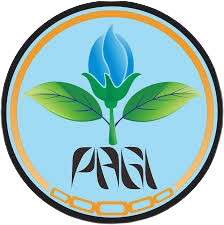| ..:: Quick Menu ::.. |
| Aim and Scope |
| Editorial Team |
| Reviewers |
| Publication Ethic |
| Abstracting/indexing |
| Guideline for Author |
| Screening for Plagiarism |
| Open Access Policy |
| Index Information |
| Copyright Notice |
Aim And Scope
Aim and Scope of the Journal of Tropical Crop Science and Technology
Aim:
The Journal of Tropical Crop Science and Technology aims to publish high-quality research manuscripts, commissioned reviews, and commentaries in the shortest possible time, covering all areas of experimental plant biology, crop protection, and environmental science. The journal seeks to disseminate original and significant insights that contribute to a deeper understanding of fundamental plant biology, effective crop protection strategies, and sustainable environmental practices. Manuscripts must present methods and results that represent substantial advancements over established techniques and approaches, offering wide-reaching interest and relevance to the global scientific community.
Scope:
1. Experimental Plant Biology:
The journal focuses on research within the broad areas of experimental plant biology, including but not limited to:
- Genomics and proteomics
- Biochemistry, including enzymology
- Plant biotechnology and physiology
- Cell biology and developmental biology
- Genetics and functional plant breeding
- Systems biology
- Plant-environment interactions
2. Experimental Crop Production:
Emphasis is placed on the study and improvement of crop production methods, particularly in the following areas:
- Abiotic damage and agronomic control methods
- Assessment and management of pest and disease damage
- Molecular methods for pest and disease detection and assessment
- Biological control and integrated pest and disease management
- Control of weeds and integrated management strategies
- Epidemiology of pests and diseases related to control measures
- Pesticide application techniques
- Sampling and monitoring schemes for diseases, nematodes, pests, and weeds
3. Environmental Science:
The journal seeks contributions in the area of environmental science, with a focus on:
- Biomonitoring and biomarkers
- Emerging contaminants and environmental analysis methods
- Environmental biology and chemistry
- Environmental catalysis, nanomaterials, and nanotechnology
- Environmental health, toxicology, and microbiology
- Environmental remediation and management
Manuscript Consideration Criteria:
Manuscripts considered for publication should be written concisely, serving as a final report with clear and significant contributions to the field. The main criterion for publication is that the work must contain original findings with broad relevance and substantial improvements over existing techniques. Methodological papers are welcomed when they describe novel techniques or represent significant advancements of established protocols.
The journal does not accept preliminary observations, confirmatory studies, or manuscripts targeting a highly specialized readership. Manuscripts merely describing gene sequences identified in other plants, uncharacterized protein expression, or studies lacking in relevant biological context will be returned without formal review. Additionally, studies focused solely on molecular markers, genetic diversity, or basic transcriptomics without further functional characterization are not within the journal's scope.










